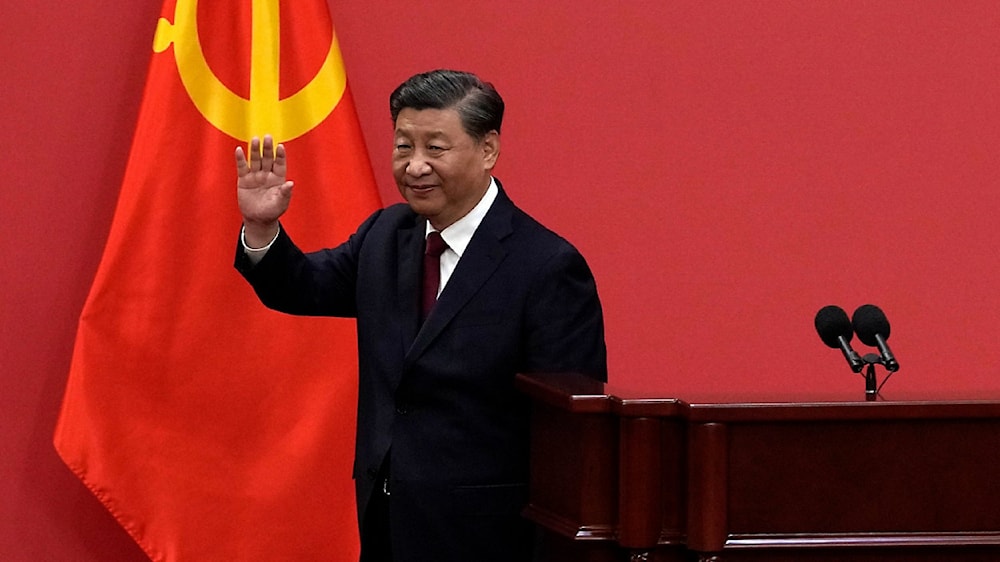China expresses readiness to strengthen relations with Australia
Chinese President Xi Jinping stresses the importance of Chinese-Australian relations, aiming to further enhance ties.
-

Chinese President Xi Jinping gestures at a 2022 event to introduce new members of the Politburo Standing Committee at the Great Hall of the People in Beijing. Undated. (AP)
Chinese President Xi Jinping highlighted the importance of Chinese-Australian relations on Monday, emphasizing his readiness to develop a more mature and stable partnership with Canberra based on mutual respect and benefit.
In a congratulatory telegram to new Australian governor-general Samantha Mostyn, Xi attached great importance to finding a "common ground while maintaining differences, to contribute to the creation of more mature and stable, more fruitful Chinese-Australian relations of comprehensive strategic partnership to bring even more benefit to the peoples of the two countries," as cited by the China Central Television.
The Chinese president also stated the countries' pivotal roles in the process of global polarization. He further added how the stable development of bilateral relations between the nations serves both their long-term interests, as well as contributes to global peace, stability, and prosperity.
In March, the Chinese foreign minister said China and Australia agreed to establish and further enhance bilateral relations in various areas, strengthening cooperation in diplomatic, trade, and scientific sectors.
A brief overview of the China-Australia relations
Chinese Prime Minister Li Qiang called for "shelving differences" with Australia as he began a four-day trip on June 15, which aimed at expanding trade despite their geopolitical rivalry.
Li, China's second most powerful figure after President Xi Jinping, arrived in Adelaide to kick off a diplomatic mission across the resource-rich continent after wrapping up a visit to New Zealand, where he supported "dialogue, not confrontation."
Since 2020, China has gradually lifted severe trade sanctions on Australian exports of wine, timber, barley, and beef, imposed during a diplomatic rift with Australia's former conservative government. However, tariffs on rock lobsters remain. The measures had cost Australian exporters an estimated Aus$20 billion ($13 billion) annually.
Economic relations between the two countries have improved since Prime Minister Anthony Albanese's government came to power in 2022, adopting a more conciliatory approach toward Beijing.
Australia has strengthened its defense alliance with the United States to counter Beijing's growing diplomatic and economic influence in the Pacific region. China criticizes the AUKUS security pact between Washington, London, and Canberra, which will provide Australia with nuclear-powered submarines, as a divisive measure increasing nuclear proliferation risks.

 3 Min Read
3 Min Read








